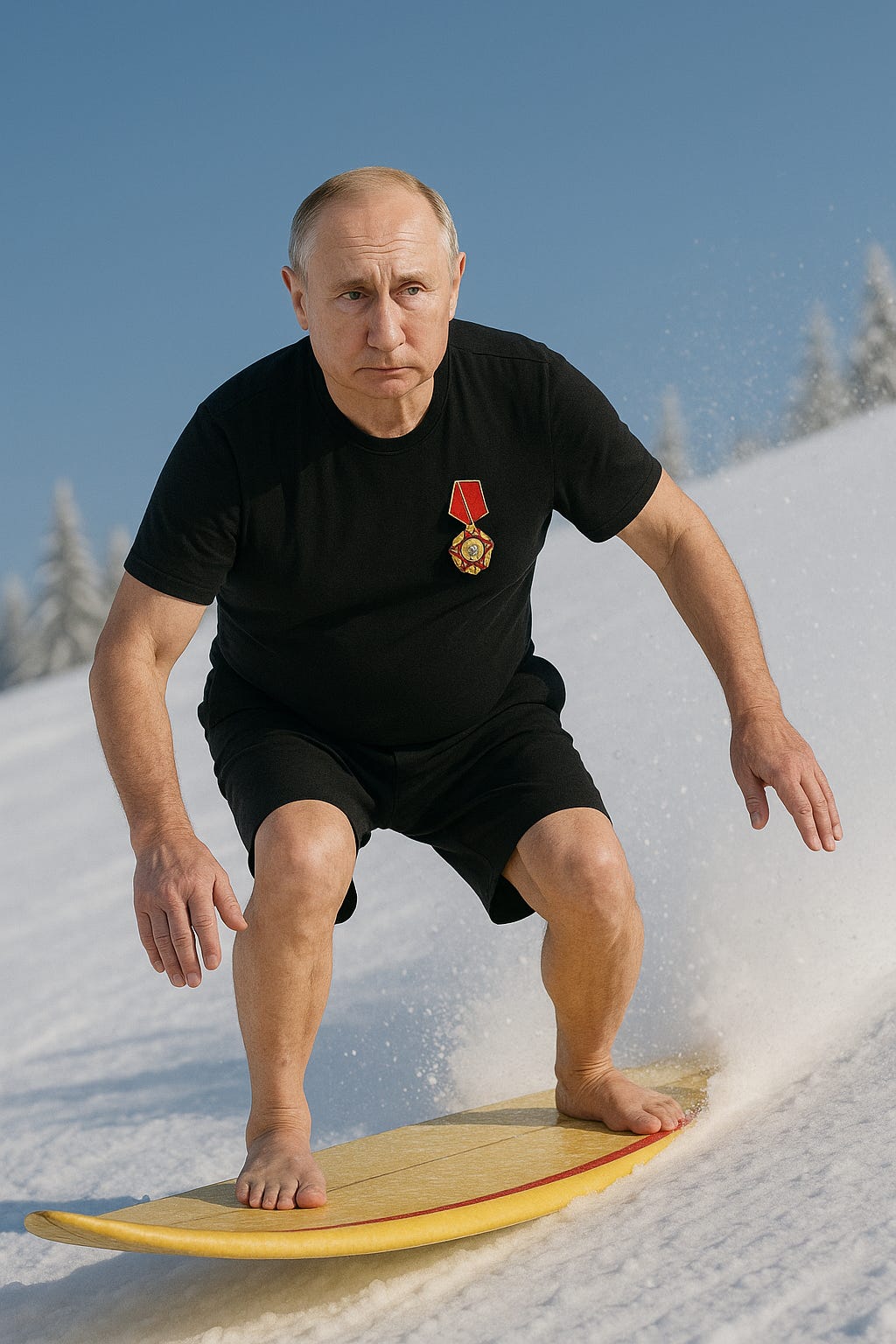When Vladimir Putin steps onto Alaskan soil to meet Donald Trump, the symbolism will be hard to miss. Alaska once belonged to the Russian Empire, until it was sold to the United States in 1867. In Russia, this is more than a historical footnote — it has become a running nationalist joke. Ever since the annexation of Crimea in 2014, Kremlin-friendly commentators have half-seriously suggested that Alaska should be “returned.” The singer Vika Tsyganova even immortalized the fantasy in a patriotic ballad: “From Alaska to the Kremlin — this is my Motherland.”
But in Russia, the anticipation of this meeting is anything but unified. The so-called “turbo-patriots” — the loudest, most militant pro-war bloggers and propagandists — are terrified that peace might break out. For them, peace would mean that the war, and all the deaths and sacrifices it has brought, were for nothing. They want victory at any cost — and Putin himself has fed that fantasy. He’s compared the current conflict to World War I, lamenting how Russia “prematurely” signed a separate peace with Germany instead of pushing on to victory. In other words: no repeat of Brest-Litovsk.
The more pragmatic wing of the political elite insists there’s no chance Putin will actually make concessions. For them, the optics alone — the Russian president being hosted on U.S. soil — is already a win.
And then there was last week’s little piece of theater. On August 8, Putin met with Stephen Witkoff, Donald Trump’s special envoy, in Moscow. Cameras rolled as Putin handed him a Soviet-era Order of Lenin — not for Witkoff, but for Julian Gallinee Gloss, the CIA’s deputy director for digital innovation. Gloss’s 21-year-old son, Michael, had signed up with Russia’s Ministry of Defense, fought in Ukraine on the Russian side, and was killed there in 2024. In Moscow, it was seen as something closer to an act of gloating — a morbid little performance piece to show he’s not coming to Alaska to compromise. He’s coming to mock.
The propaganda machine is already in overdrive. Margarita Simonyan, editor-in-chief of RT and proud standard-bearer for the turbo-patriots, boasted on social media: “Our guys liberated 110 square kilometers of Donbas in the last 24 hours. A yearly record.” Her message was clear: victories, however small, are proof that the war is winnable — and that now is the worst possible time to stop.
Some Russian commentators frame the Alaska meeting in grand historical terms, likening it to the 1943 Tehran Conference, when the victors met to carve up the postwar world. The business elite, meanwhile, say they have no idea what will actually be discussed — just like they had no clue before February 24, 2022. But they repeat one thing: Putin will not give in. He’s betting Trump won’t be around for long, and that America’s mood toward Russia will shift yet again.
The idea that Putin is a strategic chess master is overrated. He’s not a planner — he’s a surfer. He catches waves as they come, adjusts his stance mid-ride, and improvises to stay upright. Alaska, with its symbolic history, nationalist fantasies, and made-for-TV drama, is just the next big wave. And Putin intends to ride it all the way to shore — whether that shore is in the Bering Strait or the Oval Office.




